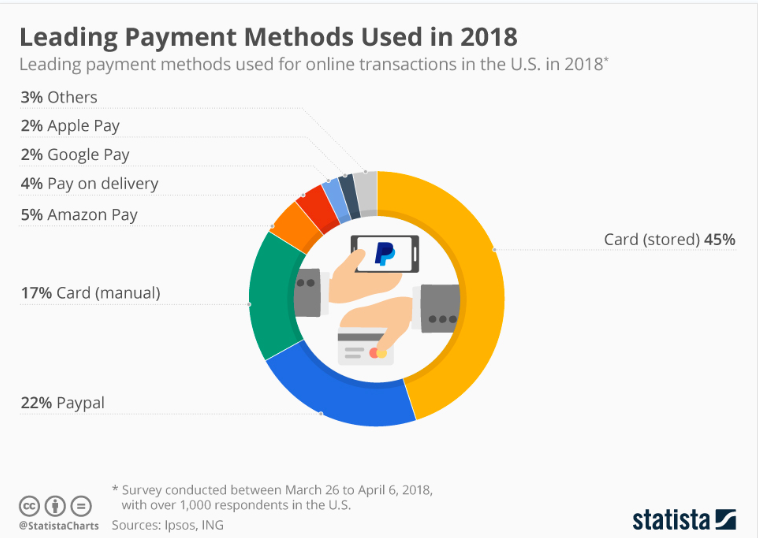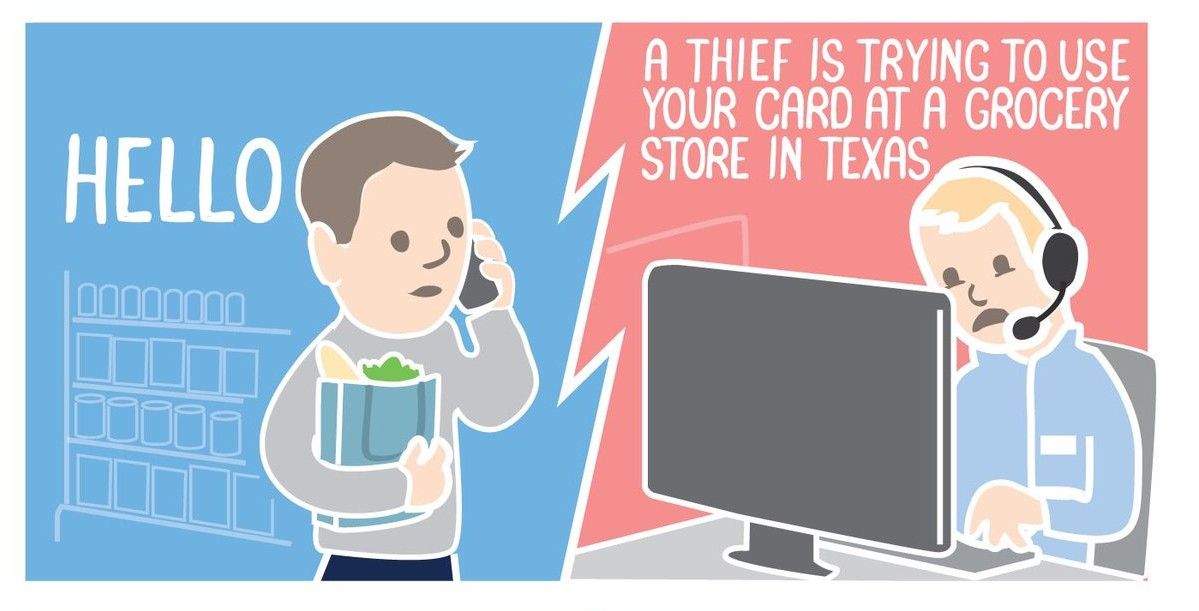— Nathan W. Pyle (@nathanwpyle) March 20, 2019
These phone calls are common because credit card fraud is a serious and growing problem. New technology like the EMV chip better protects consumers against physical credit card fraud and theft. Unfortunately, there are few protections for credit card holders from a more common crime: identity theft. According to Javelin Strategy & Research, identity theft hurt 16.7 million U.S. consumers and caused the total theft of 16.8 billion dollars in 2018.
Online Credit Card Fraud
You are especially vulnerable to identity theft when shopping online. Why? To use a credit card online, you only need the card number, the name on the card, the CCV number, and the expiration date. When shopping online, you share this information over and over again. For Americans in 2018, credit card information stored with the merchant was the main method of paying online.

These online retailers are vulnerable to hacks that lead to the massive theft of personal information and credit card data. Why are these hacks so common? Stealing information from an online retailer has little risk for a criminal. They can keep trying and improving their techniques thousands of miles away from a company’s headquarters with only a small chance of punishment.
The Blockchain Advantage
This is why blockchain payments like Bitcoin are so useful. Blockchain payments are secure push transactions. That means you need to digitally send the payment, just like you have to take your cash and hand it to the cashier at a physical store. Traditional card payments are pull transactions. That means your funds are pulled from a third party, like a bank or a credit card company.
For these traditional pull transactions, a hacker or fraudster only needs to know some key information about you to make an online payment. For push transactions, they actually have to possess the funds: whether it’s physical cash or Bitcoin. So how does someone own cryptocurrencies like Bitcoin? Is there a physical coin to keep track of? No.
Instead of a physical coin, you have a public and a private key. Your Bitcoin private key is like a secure password only you know. Your password to Google or Facebook or any other website is stored with that website, but with the right practices, your private key is stored safely only with you.
Why Does This Matter?
When your identity is stolen, you have to spend time contesting charges made with your credit card. Your credit score can take a hit which can affect so many aspects of your life. Even if you get your money back, the implications can still linger for years. A simple step to protect yourself online is to use a password manager like LastPass or BitWarden. Sites like NerdWallet have additional tips to prevent identity theft.
But no matter how much you protect yourself, your information is vulnerable as long as online payments continue to rely on pull transactions instead of push transactions. Blockchain payments make online purchases safer. That’s just one of the reasons BitPay believes in blockchain payments.
Interested in blockchain payments? The BitPay wallet app is the best introduction to Bitcoin and blockchain payments.
